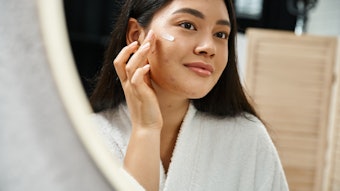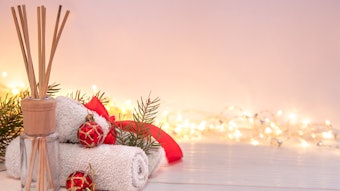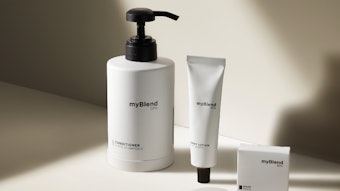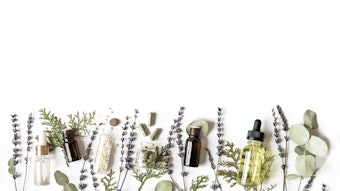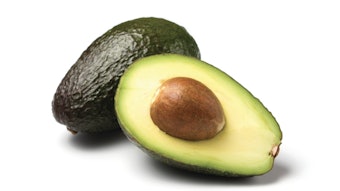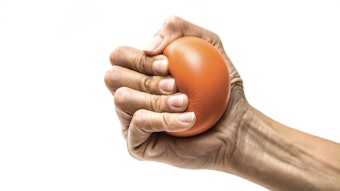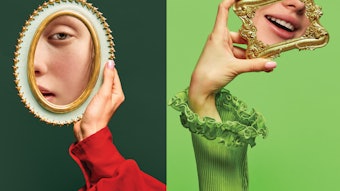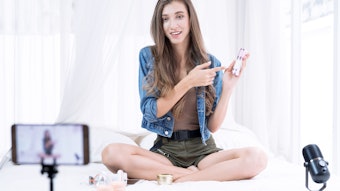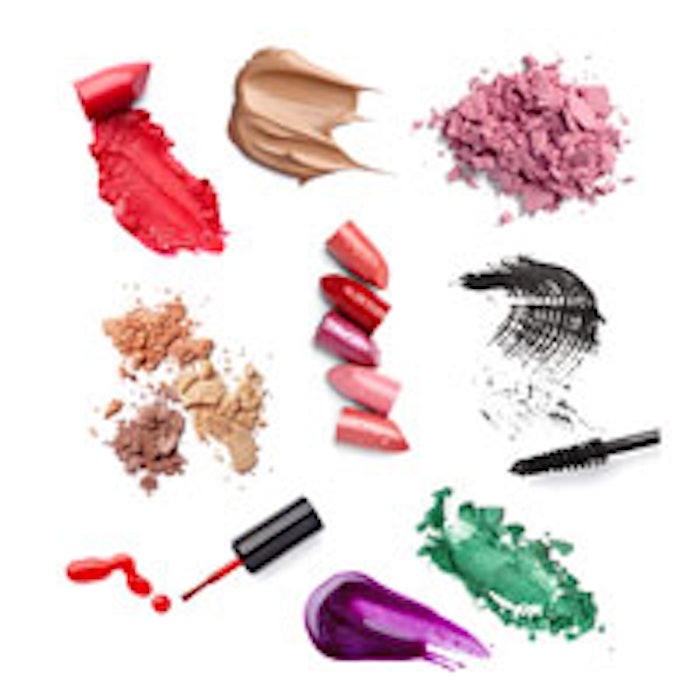
Editor's Note: This article was originally published in the February 2015 issue of GCI magazine, and appeared on www.gcimagazine.com on February 3, 2015.
- Superstores continue to dominate as the most cited venues for buying mass and masstige brands across most categories, while specialty stores remain top go-tos for makeup and fragrance.
- Time-strapped consumers are largely willing to forego great beauty product results for decent results that happen faster.
- More than half of women surveyed said they’d try any type of beauty product once, especially if it’s on sale.
- The biggest influencer in trying each of the top three categories is “great customer reviews/consumer claims from women like me.”
For United States beauty consumers who ventured out of their comfort zones to try something new, 2014 was an exciting year. From makeup to fragrances, beauty devices to tools, the year was filled with innovative products that made a positive difference in her life and the way she sees herself.
Confidence is the number one benefit that she derived from trying new beauty products last year, according to The Benchmarking Company’s (TBC) year-end roundup study, “Beauty Wish List 2015.” Fifty-three percent of women said a new product she tried made her feel more confident, “made me feel good” (44%); made her feel more beautiful (39%); or made her skin or hair feel healthier (38%). Interestingly, the feeling of confidence trumps actual product efficacy, as only 32% said the new product she tried solved her particular beauty issue and just 21% said it made them feel younger.
Her new wish list is greatly influenced by her new hero beauty SKUs of 2014. She’s anxious to try more, and has her 2015 wish list at the ready. To find out which products and brands made the biggest impact in her world this year, and how they are shaping her current desires, “Beauty Wish List 2015” delves into her attitudes, preferences, beauty purchase patterns and desires in 12 major beauty product categories to expose the brands and products she values most and what she’s looking to buy in 2015.
Purchase patterns point to specialty stores in 2015; Internet as main influencer
Superstores like Walmart and Target continue to dominate as the most cited venues for buying mass and masstige brands in hair care, facial skin care, bath and body, nails, beauty tools, intimate care, sunscreen and devices, but specialty stores such as Sephora and Ulta have become her go-to place to buy makeup (39% of women most often purchase makeup at a specialty store) and fragrance products (32%). Department stores, once a stalwart beauty product venue, continue to decline as top venue choices for beauty consumers, with women citing that they only buy fragrances (28%) most often at a department store. Department stores were not cited in the top three venues for purchasing hair care, facial skin care, makeup, bath & body, nail care, beauty devices, beauty ingestibles, tools, treatments, intimate care or sun care products. Of note:
- In addition to specialty stores (48%), women still like to get their new beauty product information through magazines (51%), but blogs (46%), sampling sites (41%) and social media (41%) have become increasingly important as the savvy beauty consumer’s product information portals. Television as a medium she looks to most often for beauty product information has declined in recent years, with only 20% noting television as a primary source.
- Women are more time sensitive than ever, and are looking to buy products that fit into her fast-paced lifestyle. In fact, she’s largely willing to forego great beauty product results for decent results that happen faster. When asked which beauty product attributes are most important to them, 93% of women said products using the highest quality ingredients were somewhat to extremely important; 90% said fast-acting (7-day) beauty products yielding decent results were somewhat to extremely important to them. Beauty products taking 28 days to work but yielding fantastic results were somewhat to extremely important to only 75% of women.
- Fifty-seven percent of women spend less than 10 minutes a day on their facial skin care regimen; 43% spend between 11–20 minutes on their makeup routine; 42% spend between 11–20 minutes on their hair care routine; and 42% spend between 11–20 minutes on their bath and body regimen daily.
- A little over half of the women surveyed (51%) said they’d try any type of beauty product once, especially if it’s on sale. Thirty-five percent of women said they try new beauty products as often as they can, even if it stretches her budget; 13% try new products a few times a year; and only 1% call themselves traditionalists, rarely trying new beauty products.
Fun new makeup products get her to buy outside of her comfort zone
How comfortable are female beauty consumers with change? Apparently, very comfortable! A full 79% of women say they bought a beauty product outside of their comfort zone in 2014, with 55% saying it was a makeup product; 50% facial skin care product; 32% hair care product; 18% nail care product and 13% fragrance.
The following is a deeper dive into three of the specific types of products she was hesitant to buy per category in 2014, which brands she cited as most beneficial to her, what initially influenced her to take a chance on that type of product, and whether or not she would continue to buy it.
- Hair care: of those who indicated they tried a new hair care product that they were initially hesitant about purchasing, 28% said it was an at-home hair coloring product; 21% said it was a hair oil product; and 19% indicated it was a dry shampoo product. Overall, 58% like the product they tried and would buy it again. The most highly cited brands per category were L’Oréal and Garnier for at-home hair coloring; Argan and Moroccan (no particular brand name) for hair oil products; and Suave Dry Shampoo, Herbal Essence or TRESemmé in the dry shampoo category.
- Facial skin care: of those who indicated they tried a new facial skin care product that they were initially hesitant about purchasing, 20% said it was a serum; 15% said it was a cleanser, mask or peel, or combination (BB, CC) product. Again, 58% said they liked the product and would buy it again. The most highly cited brands per category were Nerium, Origins and Olay for serum products; Neutrogena, Clinique, Garnier and Shiseido for cleanser products; and Garnier and Maybelline for BB cream products.
- Makeup: of those who indicated they tried a new makeup product that they were initially hesitant about purchasing, 17% said it was a foundation and 15% said it was a lipstick. Overall, 61% of women would buy that new makeup product again. The most highly cited makeup brands were Bare Escentuals liquid foundation and CoverGirl (varied) products for foundation; and L’Oréal, Revlon and Mary Kay (varied) for lipstick products.
- Her biggest influence in trying each of these top three categories is “great customer reviews/consumer claims from women like me” at 29% (highest cited influencer) for hair care and facial skin care and 25% (highest cited influencer) for makeup.
- When asked to name the particular brand that changed her life in 2014, L’Oréal products of all types topped the list, with L’Oréal-owned Clarisonic products coming in second place, and bareMinerals, Garnier and Olay products mentioned third most often.
- BB creams were cited as the No. 1 specific type of product that changed her life in 2014.
- Benefit Cosmetics’ They’re Real Mascara was the most cited specific brand and product name that made a positive difference to her in 2014.
Beauty tools, devices and makeup top her wish list
When asked “which one new type of beauty product do you want to try in 2015?”, respondents mentioned laser hair removal, airbrush makeup or foundation, and mineral makeup/foundation (general) as products and services they most want to try. Specifically, they want to try products from Clarisonic (No. 1 cited), bareMinerals (No. 2 cited), Urban Decay (No. 3 cited), Naked (No. 4 cited) and no!no! (No. 5 cited) in 2015.
All-in-one solutions (multifunctional products) hold high appeal to her as well. In her perfect world, 2015 will offer makeup that reduces wrinkles and moisturizes the face (50% believe that product would hold the highest appeal); 45% are looking for a skin rejuvenation device that reduces wrinkles, smoothes skin and tightens muscles; 43% want a BB cream; and 43% are looking for a facial wipe that cleanses, moisturizes and has SPF in one wipe. Most women who haven’t already tried the brands and products on her wish list say that high expense (54%) is stopping her from trying them, followed by the need to sample the product first (36%).
Finally, respondents revealed their holiday wish lists. Makeup assortments/palettes were the top cited gift she wants to receive next holiday season, followed by a skin care gift set or a beauty device/tool system/set.
Methodology: An online survey of 1,033 women was conducted for this report in October 2014. To qualify for this study, respondents had to be female, live in the U.S. and be between the ages of 18 and 75. To ensure that this study was nationally representative, TBC controlled for important demographic information such as age, income, ethnicity, race and education.
Further study findings can be obtained by calling TBC at 1-703-871-5300 or by sending an email to [email protected]. Findings will also be revealed in an upcoming TBC infographic. To join the TBC mailing list to receive infographics, visit us at www.benchmarkingcompany.com.
Denise Herich is co-founder and managing partner at The Benchmarking Company, a bi-coastal consumer research firm borne from Alisa Beyer’s The Beauty Company. The Benchmarking Company provides marketing and strategy professionals in the beauty and personal care industries with forward-thinking, need-to-know information about its customers and prospects through consumer research studies and beauty product testing.
